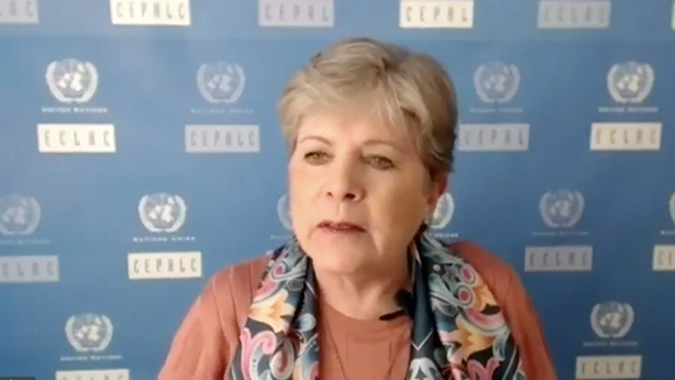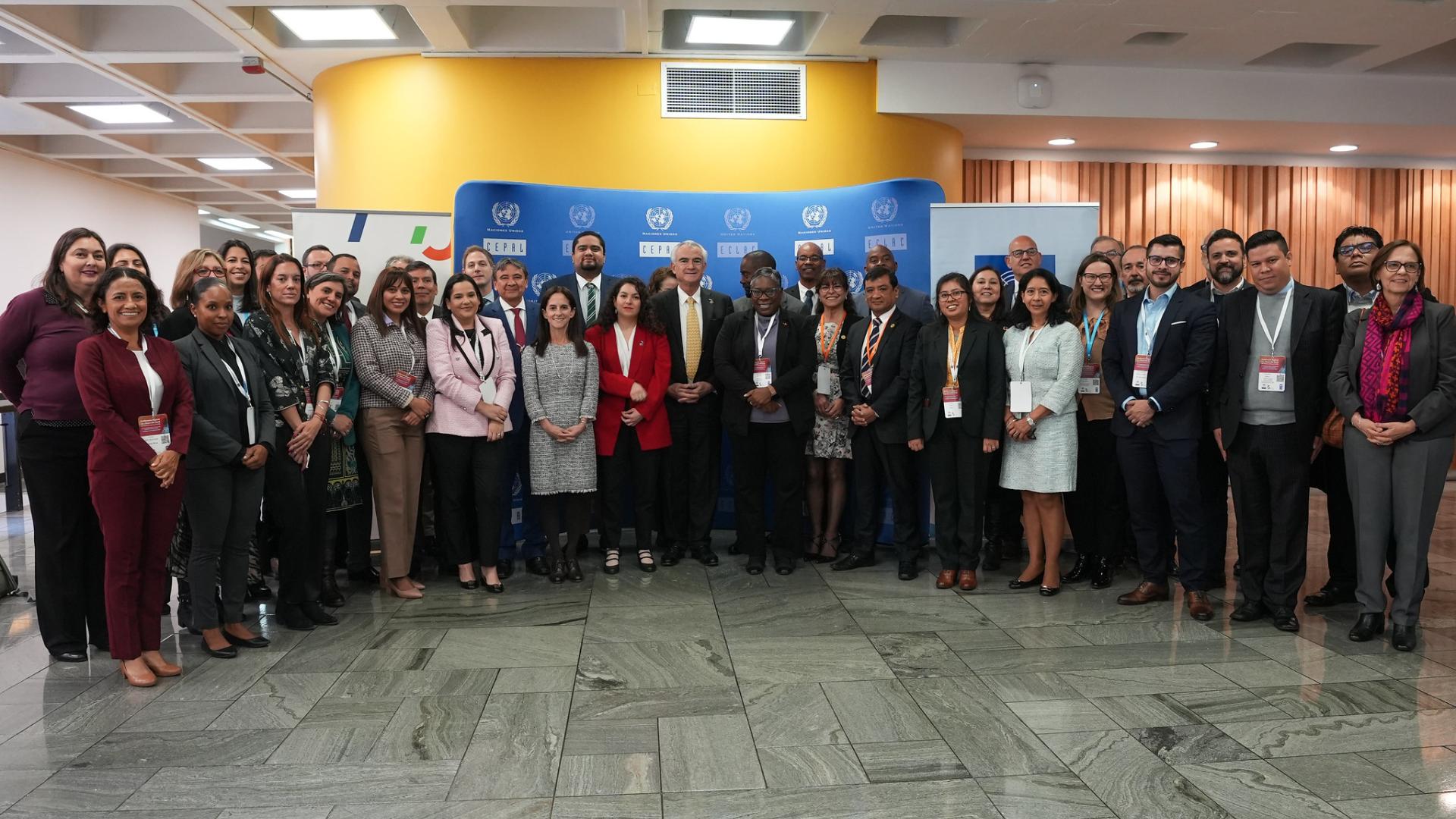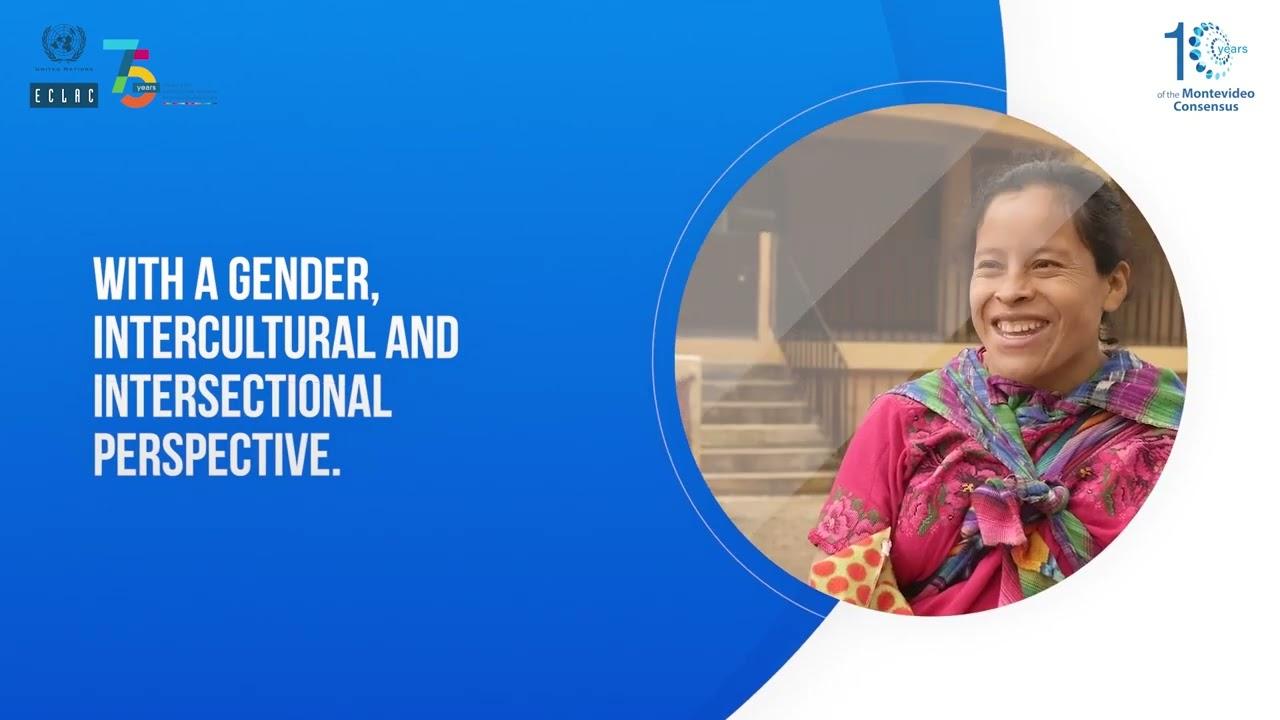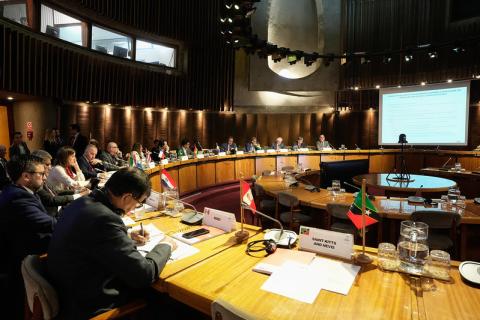Briefing note
The current crisis should serve as an opportunity to achieve broad social and political consensus to implement ambitious reforms through multilateral and regional cooperation, which would allow for achieving sustainable and egalitarian growth that can meet the heterogeneous needs of countries of all income levels, Alicia Bárcena, Executive Secretary of the Economic Commission for Latin America and the Caribbean (ECLAC), stated today.
The senior United Nations official spoke at a seminar entitled International financial cooperation amid the Latin American economic crisis, organized by ECLAC and the Latin American Reserve Fund (FLAR). Participating along with Alicia Bárcena were José Darío Uribe, FLAR’s Executive President, and José Antonio Ocampo, a Professor at Columbia University, who made a presentation. The event was moderated by Carlos Giraldo, the Director of Economic Studies at FLAR.
In her remarks, ECLAC’s highest authority recalled that the impact of COVID-19 will significantly widen the financing gap in Latin America and the Caribbean. Between 2019 and 2020, the stock of external government debt will rise from 46% to 55.3% of GDP, and total external debt servicing will rise from 49.8% to 57% of total exports of goods and services, she specified.
In that sense, she stressed the need for an articulated response to the crisis, with greater cooperation between multilateral financial institutions and recognition of the heterogeneity of Latin America and the Caribbean.
“The response of multilateral financial institutions has been fragmented, deficient in terms of scale, and incapable of addressing the heterogeneity and specific financing needs of the region’s countries. Financial institutions need to significantly expand the scope and magnitude of their funding,” Alicia Bárcena sustained.
To that end, she advocated for creating a financial safety net where regional institutions are complemented by global entities. In the case of FLAR, like other regional funds, it should complement the IMF’s efforts to provide financing to support the balance of payments, which means it needs to expand its membership base, ideally to all the countries of the region, she emphasized.
She noted that the $64 billion dollars in emergency and concessional funding that the International Monetary Fund is providing to 20 economies in the region is not enough to close Latin America and the Caribbean’s financing gap.
“Multilateral Development Banks must expand their loan portfolios with greater levels of capitalization and establish more flexible criteria for granting loans. They could also increase their loans without compromising their preferred creditor status. In addition, they must try to use their available capital in a more effective way,” Alicia Bárcena underlined.
She also stressed that the most effective and expeditious way of increasing liquidity is through the reallocation and new issuance of Special Drawing Rights (SDRs).
“A new SDR allocation of 500 billion would represent an additional $56 billion dollars for the economies of Latin America and the Caribbean ($2.5 billion dollars would go to the Caribbean). This would represent an important increase in the international reserves of countries that urgently need this, and FLAR has a very important role to play there,” she affirmed.
The senior United Nations official also highlighted the Fund to Alleviate COVID-19 Economics (FACE) initiative, which channels liquidity from developed economies to developing economies (half a billion dollars) through multilateral development banks.
Finally, she emphasized that greater access to liquidity is necessary, but it is not enough.
“We have to fight so that the G20’s DSSI initiative to reduce debt can be broadened and extended over time – well, that is already being achieved – but above all in terms of coverage, to support middle-income countries as well, mainly small island states and the smallest economies,” Alicia Bárcena concluded.
In his remarks, José Darío Uribe, FLAR’s Executive President, noted that the policy measures adopted to date have been able to maintain financial stability, but huge challenges remain.
“Latin America and the Caribbean needs international help for a sustained recovery. A solid financial safety net is needed,” he stated.
José Antonio Ocampo, meanwhile, indicated that there is a major difference between the current crisis and that of 2008-2009, because international help was much greater at that time.
“We hope that the new United States Government is much more open to international cooperation,” the scholar expressed.



